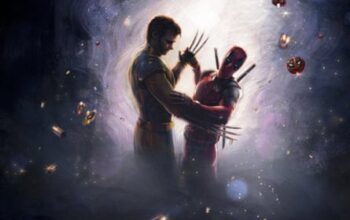
Y
Greta Gerwig may seem like an unconventional choice to adapt CS Lewis’s Narnia stories for Netflix. Initially, many may agree with this assessment. Gerwig’s career began as an actor in mumblecore films like Baghead, Hannah Takes the Stairs, and Greenberg, before transitioning into independent cinema as a director with Lady Bird. However, she gained widespread recognition with her latest film, Barbie, which grossed $1.4 billion and cleverly challenged conservative ideals. Despite its focus on a child’s toy, many will remember Barbie as the most socially relevant movie of 2023.
What plans does Gerwig have for Aslan, Eustace Grubb, and Mr. Tumnus? Gerwig will be directing at least two films from Lewis’s seven-book series for Netflix, and the streaming platform’s chairman Scott Stuber hinted to Variety that the movies may follow a more traditional approach than expected. Stuber mentioned that Gerwig has a background in Christianity and the CS Lewis books are heavily rooted in it. They discussed the possibility of licensing these books and the Roald Dahl stories, as they wanted recognizable stories to tell. Stuber also mentioned that Gerwig is currently mapping out the narrative arc for the films, with a strong focus on The Lion, the Witch and the Wardrobe.
It is not surprising that Gerwig may focus on traditional religious symbolism, considering her previous film that defied convention with a playful but heartfelt tone. As a non-religious child, I recall the lengthy scenes in The Lion, the Witch and the Wardrobe where the Pevensie children wait for Aslan (referred to as Jesus-Lion) to appear. However, when he does arrive, he is not as exciting as expected.
Lewis appears to have made the same mistake as Milton did in Paradise Lost, where the Puritan writer made Satan the main character. The villainous White Witch, with her never-ending supply of turkish delight and stylish winter clothing, is a much more appealing central figure. In Lewis’s final book of the series, The Last Battle, the heavy-handed attempt to present an allegory for Christianity’s Judgment Day and the second coming of Christ is even more disheartening. However, some of the other stories, such as Voyage of the Dawn Treader, The Magician’s Nephew, and even The Horse and His Boy, where Lewis lets his love for pure fantasy take over, are much more enjoyable.
The three Narnia films made in the 00s, 2005’s The Lion, the Witch and the Wardrobe, 2008’s Prince Caspian and 2010’s The Voyage of the Dawn Treader, were prosaic in the extreme despite the best efforts of the always excellent Tilda Swinton as the White Witch. The idea of Gerwig shaking the architecture with a spikier take on Narnia has a real zing to it, given how careful previous film-makers have been.
Bypass the promotional newsletter offer.
after newsletter promotion
However, Gerwig is not limited to one style and we shouldn’t anticipate Barbie to be a blueprint for her upcoming endeavors. Her brilliant film, Little Women, stayed true to Louisa May Alcott’s timeless book while also feeling more contemporary and authentic than any previous interpretation. The character of Mr. Tumnus may not be played by Ryan Gosling, and there probably won’t be scenes where the bearded goat-man scolds Aslan for converting children to Christianity using obvious religious symbolism and the appeal of cuddling a giant lion. Although, it would be nice if that were the case.
Source: theguardian.com


